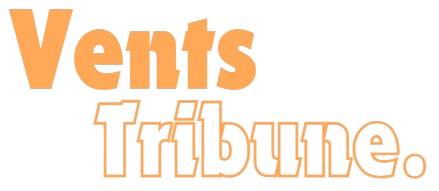Table of Contents
- The Roots of the Icelandic Language
- Preservation of Cultural Heritage
- Modern Influences and Adaptations
- The Descriptive and Poetic Nature of Icelandic
- Challenges in Learning Icelandic
- Benefits of Learning Icelandic
- Practical Tips for Learning Icelandic
Key Takeaways:
- The Icelandic language has a rich history dating back to the Viking Age.
- Preserving the language is crucial for maintaining Iceland’s cultural heritage.
- Modern influences affect the language, but efforts are being made to keep it pure.
- Icelandic words are often descriptive and poetic, adding a unique flavor to communication.
- Learning Icelandic can be a challenging yet rewarding experience.
The Roots of the Icelandic Language
The Icelandic language is one of the oldest living languages in the world. Its history dates back to the Viking Age, around the 9th century. This language has remained unchanged, meaning modern-day Icelanders can easily read the classic sagas written centuries ago. This conservation provides a unique opportunity to look into history, allowing easy access to ancient texts like the Prose Edda or the Poetic Edda. This level of steadfastness is seldom found in other languages, which turns Icelandic into a gateway to medieval Scandinavia and its diverse cultural background.
Preservation of Cultural Heritage
In a world where languages are becoming increasingly homogenized, the survival of Icelandic is a testament to the nation’s commitment to preserving its heritage. The Icelandic government consciously tries to keep foreign words at bay and create new terminology from old roots. For instance, instead of adopting the English term “email,” Icelandic uses “tölvupóstur,” which translates to “computer post.” These proactive measures ensure that the language remains distinctly Icelandic. Moreover, a solid societal effort exists to teach and maintain the language among younger generations, ensuring Icelandic does not fall into obsolescence. Schools, media, and public life are steeped in the language, fostering an environment where Icelandic thrives.
Modern Influences and Adaptations
Despite the efforts to preserve the Icelandic language, keeping modern influences at bay is impossible. The digital age, globalization, and media consumption bring new words and expressions daily. However, the Icelandic Language Council is vigilant, often creating new Icelandic words to replace foreign borrowings. For instance, the Icelandic word for “computer” is “tölva,” a blend of the words for number and prophetess. This creative adaptation enriches the language and encapsulates the Icelanders’ inventive spirit. The council’s work ensures that the language evolves organically while retaining its core elements. This balancing act demonstrates a unique approach to modern linguistic challenges, allowing Icelandic to stay relevant without losing its historical essence.
The Descriptive and Poetic Nature of Icelandic
Icelandic words are often descriptive and poetic, adding a unique flavor to communication. For example, the term for a volcano is “deadfall,” literally translating to “fire mountain.” Such vivid descriptions make learning the language an engaging experience, allowing one to see the world through a different lens. This richness in vocabulary provides more than just functional communication; it offers an emotional and imaginative dimension to everyday language use. Furthermore, many Icelandic words have ancient origins, carrying stories and cultural significance that enrich conversations. This descriptive nature is not limited to common nouns; it extends to idioms, expressions, and even place names, imbibing them with vivid imagery and cultural depth.
Challenges in Learning Icelandic
Learning Icelandic can be a daunting task for speakers of other languages. Its complex grammar, unusual sounds, and extensive conjugations require dedication. However, for those who persevere, the rewards are significant. Communicating with locals in their native tongue can offer deeper insights into Icelandic culture and way of life. Furthermore, the challenges can be rewarding, offering cognitive benefits and a sense of achievement. Becoming fluent in Icelandic opens doors to understanding Iceland’s rich literary tradition, including its sagas, poetry, and modern literature. The nuanced perspectives gained through language learning can provide a more profound appreciation of Iceland’s heritage and contemporary life. Language learners often find that Icelanders appreciate their efforts, fostering more profound, more meaningful interactions.
Benefits of Learning Icelandic
Mastering Icelandic opens up direct access to the country’s rich literary heritage, from the medieval sagas to contemporary literature. Moreover, understanding the language enables a deeper connection with Icelanders and a more authentic experience of the country’s stunning landscapes and traditions. Speaking Icelandic allows one to participate more fully in the cultural and social life of the country. It enriches travel experiences, making navigating, understanding local customs, and conversing with locals easier. Furthermore, it provides an invaluable tool for researchers, historians, and enthusiasts interested in Viking history, medieval literature, and Norse mythology. For tourists and expatriates, speaking the language can also ease integration, making daily tasks more manageable and rewarding.
Practical Tips for Learning Icelandic
- Begin with simple expressions and slowly enhance your word bank. Start by using standard greetings, inquiries, and usual phrases. As you become more at ease, explore more intricate structures.
- Engage with Icelandic media, such as movies, music, and books. Immersing yourself in the language through various media can accelerate learning and improve comprehension. Icelandic TV shows, radio stations, and podcasts can be beneficial.
- Practice speaking with native Icelanders whenever possible. Real-life practice is invaluable. Participate in Icelandic language groups or find language exchange partners to practice conversational skills.
- Consider joining language courses or online communities. Structured in-person or online courses provide a solid foundation in grammar and syntax, and online communities can offer support, resources, and opportunities for practice.
Conclusion
The Icelandic language is more than just a tool for communication; it is a cornerstone of the Icelandic national identity. Delving into the intricacies of Icelandic can be immensely fulfilling, whether you aspire to explore Iceland or broaden your linguistic knowledge.
Stay in touch to get more news & updates on Ventstribune.Com!

